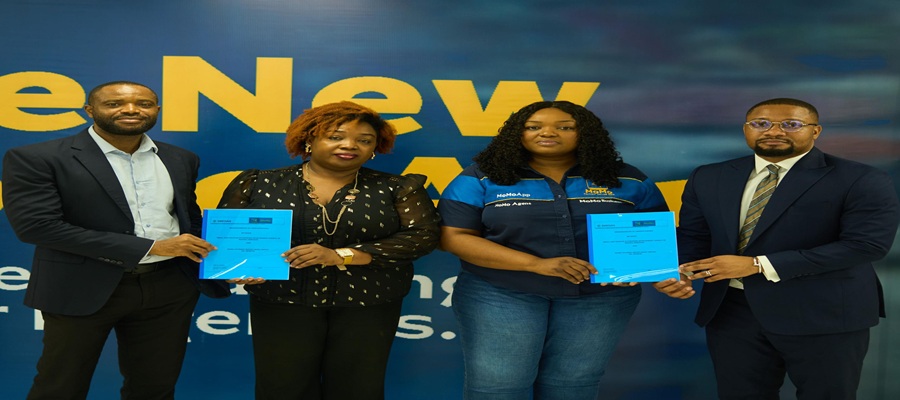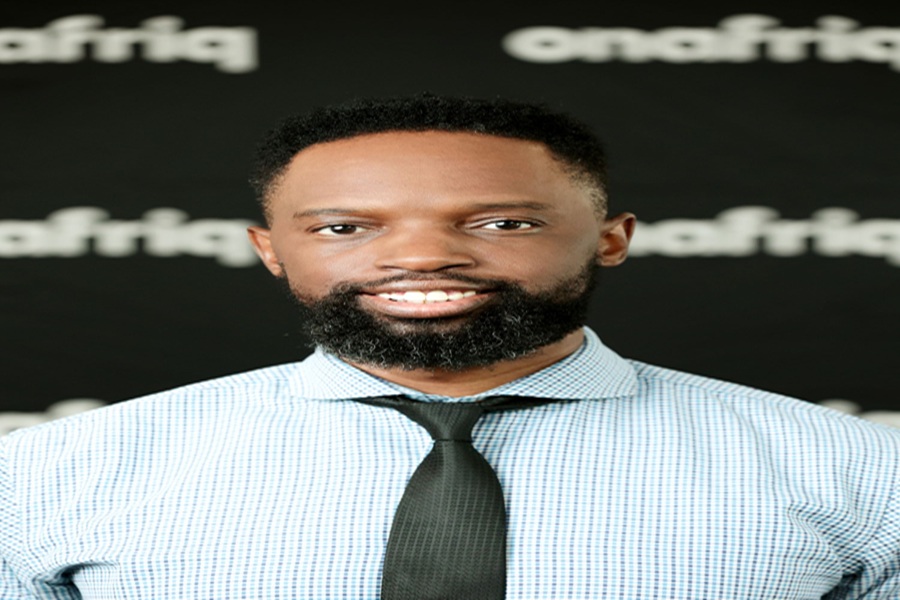Telecom
Active Telecoms Subscribers Decreased by 72,782 in April – NCC

The Nigerian Communications Commission (NCC) says the active subscribers on the telecommunication networks reduced by 72,782 in April 2019.
The telecommunications regulator disclosed this in its Monthly Subscriber/Operator Data made available on its website on Tuesday.
The active subscribers on the telecommunications networks decreased from 173,713,842 in March to 173,641,060 in April.
According to the data, 173,383,803 of the 173,641,060 active users subscribe to the Global System for Mobile Communications (GSM) network services.
The GSM operators’ active customers figure reduced by 49,060 in April, after the 173,432,863 subscribers recorded in March 2019.
The report stated that out of the GSM operators, MTN had 64,732,167 users in April, showing a decrease of 302,448 from the 65,034,615 it recorded in March 2019.
Globacom’s figure increased in April by 117,053 with 46,380,756 customers, as against 46,203,703 in March.
Airtel had 45,433,300 subscribers in the month under review, which showed an increase of 194,965 users, from the 45,238,335 recorded in March.
9mobile recorded 16,720,146 customers in April, against 16,838,403 in March; having a decrease of 118,257 subscribers.
Visafone, which just migrated from the Code Division Multiple Access (CDMA) to the GSM network had 117,434 subscribers in the month of April, showing a decrease of 373 from its March record of 117,807.
The Code Division Multiple Access (CDMA) operators recorded no subscriber in the month under review, indicating a decrease of 4,460 from the 4,460 users in March 2019.
The only surviving CDMA operator, Multi-Links, had 4,460 in March, but lost all the subscribers in April 2019.
The monthly subscriber/operator data showed that the Fixed Wireless network (landline) consumers reduced to zero in April, as against 26,865 recorded in March.
One of the two landline networks, Visafone had lost all 26,437 March subscribers in April, while Multi-Links also lost all its 428 customers in the month under review.
It also revealed that the Fixed Wired operators (landline) subscriber base increased by 879; increasing to 108,033 users in April, as against 107,154 recorded in March 2019.
In the Fixed Wired arena, MTN Fixed moved from 5,449 users in March 2019 to 5,373 users in April, thereby decreasing by 76 customers.
Glo Fixed had 3,842 users in April, increasing by 1,053 customers from the March record of 2,789.
IpNX network moved from 2,221 subscriber base in March 2019 to 2,237 in April, hence, its customers increased by 16.
The report indicated that 21st Century Network had 96,581 customers in April, recording a decrease of 114 users from its March record of 96,695 subscribers.
It also showed that the two Voice Over Internet Protocol (VOIP) networks had 149,224 active users in April, as their customers increased by 6,724 from their March 2019 subscriber base of 142,500.
Of the VOIP networks, Smile Communication had 144,619 customers, giving an increase of 7,372 users to its March result of 137,247.
Ntel had 4,605 consumers subscribing to its products and services in April, showing a decrease of 648 users from the March 2019 record of 5,253.
The regulatory body said that Section 89, Subsection 3(c) of the Nigerian Communications Act, 2003 mandated it to monitor and report the state of the telecommunications industry.
“The commission is mandated to provide statistical analyses and identify industry trends with regard to services, tariffs, operators, technology, subscribers, issues of competition and dominance.
“This is with a view to identifying areas where regulatory intervention will be needed.
“The commission regularly conducts studies, surveys and produces reports on the telecommunications industry.
“Therefore, telecommunications operators are obligated, under the terms of their licenses, to provide NCC with such data on a regular basis for analytical review and publishing,” NCC said.
Telecom
MoMo PSB, SMEDAN Forge Pact to Digitise Nigeria’s SMEs

MoMo PSB, MTN Nigeria’s fintech powerhouse, sealed a game-changing pact with the Small and Medium Enterprises Development Agency of Nigeria (SMEDAN) on February 3 at its Victoria Island headquarters, unleashing digital and financial tools to turbocharge SMEs nationwide for seamless operations, revenue surges, and sustainable scaling.

MoMo PSB, SMEDAN
The partnership arms SMEDAN-registered merchants with MoMo’s multi-channel arsenal—apps, POS, USSD, partner portals, and custom platforms—to hoover payments across streams, automate payrolls, juggle tills and shop chains, and boss core business metrics from one slick dashboard.
This powerhouse duo targets Nigeria’s SME engine room, where digital chokepoints throttle growth, injecting MTN’s MoMo muscle to slash friction and unlock efficiencies for mama-put hustles to mid-tier factories alike.
Industry watchers hail the MoU as a masterstroke in President Tinubu’s economic revival playbook, fusing government SME scaffolding with private-sector fintech firepower to birth a new breed of digitally dominant entrepreneurs primed for AfCFTA conquests.
Telecom
MTN Ignites Teacher Revolution: 5,000 Digitally Armed for Phase Two

MTN Foundation and SAIL Innovation Lab have roared into Phase Two of their blockbuster Teachers Fellowship Programme, onboarding 5,000 elite educators from Nigeria’s 36 states and the FCT since January 13 to turbocharge public schools with cutting-edge digital wizardry and global teaching firepower.

MTN
This mobile-first crusade, laser-focused on arming primary and secondary school titans for the digital economy showdown, kicks off with a grueling four-week virtual bootcamp via WhatsApp and Google Classroom—slashing travel barriers for even the remotest rural warriors.
Organisers promise peer-to-peer fireworks and real-time gut-checks, capping Stage One with a virtual gala saluting milestones before culling the pack to a fierce “Top 500” via engagement, assessments, and hustle for Phase Two’s inquiry-based mastery and deep-dive digital metamorphosis.
MTN Foundation’s Executive Director Odunayo Sanya lit the fuse: “Teachers are the backbone of our education system. By empowering them with digital competencies and innovative teaching methods, we are directly investing in the future of our youth.
This Fellowship Programme is designed to ensure that our educators are not just keeping pace with global best practices but are actively shaping the next generation of innovators and leaders.”
Nigeria’s heftiest private teacher uprising scales from last year’s triumphs, minting classroom commandos as state ambassadors to ignite inquiry-driven, tech-fueled learning revolutions coast-to-coast.
Telecom
Onafriq, PAPSS Launch Wallet-Based Payments Pilot from Nigeria to Ghana

Onafriq Nigeria Payments Ltd, a CBN licenced payment service provider, partners with The Pan-African Payment and Settlement System (PAPSS) to pilot the continent’s first wallet-based outbound payments from Nigeria to Ghana – fully in Naira and instant, without relying on hard currency conversion, in partnership with Banks and Mobile Money Operators.

The pilot service, approved by the Central Bank of Nigeria (CBN), enables cross-border intra-Africa payments for individuals, merchants, and traders.
In particular, the service will benefit SMEs, the real engine of intra-African trade; all now have access to a faster, cheaper way to reach customers and suppliers across the border.
By reducing barriers to cross-border trade, the new service will allow these businesses to grow their addressable markets and activity. From the 1st of December, this service will be fully operational for a 6-month period.
Through the partnership with PAPSS, Onafriq is supporting the operationalization of the AfCFTA (Africa Continental Free Trade Area) mandate.
The mandate itself is driving tariff-free trade for the 54 member states of AfCFTA. Within the partnership itself, Onafriq provides the mobile money rails, with an ecosystem consisting of over 1 billion mobile wallets.
Meanwhile, PAPSS brings a network of over 160 commercial banks, representing an ecosystem of more than 400 million bank accounts across its 19 African countries of operation.
The two partners are essentially seamlessly connecting two worlds: mobile money and banking. As a consequence, intra-African trade transactions will take place more easily and opportunities will be created.
Currently, Africa is made up of bank and mobile-led markets, with siloes often inhibiting transactions between these economies. However, this partnership will remove these boundaries. With over one billion mobile wallets and 500 million bank wallets across Africa, this partnership will allow for cross-border collaboration at scale.
This partnership builds on Onafriq and PAPSS’ existing partnership for payments into Ghana, announced earlier this year.
Mxolisi Msutwana, Managing Director Anglophone West Africa said, “Our work with PAPSS shows what collaboration at scale can unlock—seamless, secure connections between banking systems and mobile money ecosystems.
“This is how we open bi-directional trade corridors, reduce costs for businesses, and give African enterprises the rails they need to trade with confidence in their own currencies. The vision is continental, but it starts with practical steps like this one.”
Ositadimma Ugwu, Chief Information Officer, PAPSS, added “Too often, African businesses and individuals see borders as roadblocks instead of opportunities. With this step, we’re challenging that mindset, giving Nigerians the ability to send value next door with the same ease as sending a text message.
“Our vision is simple: make Africa’s borders invisible to payments. This pilot makes that a reality, moving us closer to a continent where payments don’t pause at the border.”
This new Nigeria-to-Ghana outbound capability builds on the successful Ghana-to-Nigeria instant payments corridor launched earlier this year – further proof that Africa’s payments future is local, instant, and inclusive.

 E-Financial3 days ago
E-Financial3 days agoAccidental Billionaire Opts for Jail Instead of Returning Money Credited Him by Mistake

 News3 days ago
News3 days agoUS Set to Deport 79 Nigerians on Criminal List

 News3 days ago
News3 days agoUngoverned AI is Quietly Scaling Risk in Nigeria – Dr. Naiho

 Telecom3 days ago
Telecom3 days agoAirtel Nigeria Commits to Boosting Nigeria’s Digital Infrastructure

 E-Financial3 days ago
E-Financial3 days agoSEC Warns of Potential Ponzi-style Risks in AURUM BOT, ModMount

 E-Business2 days ago
E-Business2 days agoOADC Lagos Reinforces Commitment to Local Data Hosting and Digital Transformation @ NDPC’s National Privacy Week Summit

 Telecom3 days ago
Telecom3 days agoGoogle, African Partners Launch WAXAL to Empower 100m Africans in AI Era

 News3 days ago
News3 days agoFirst Lady Commissions Dream Centre @ OAU

























